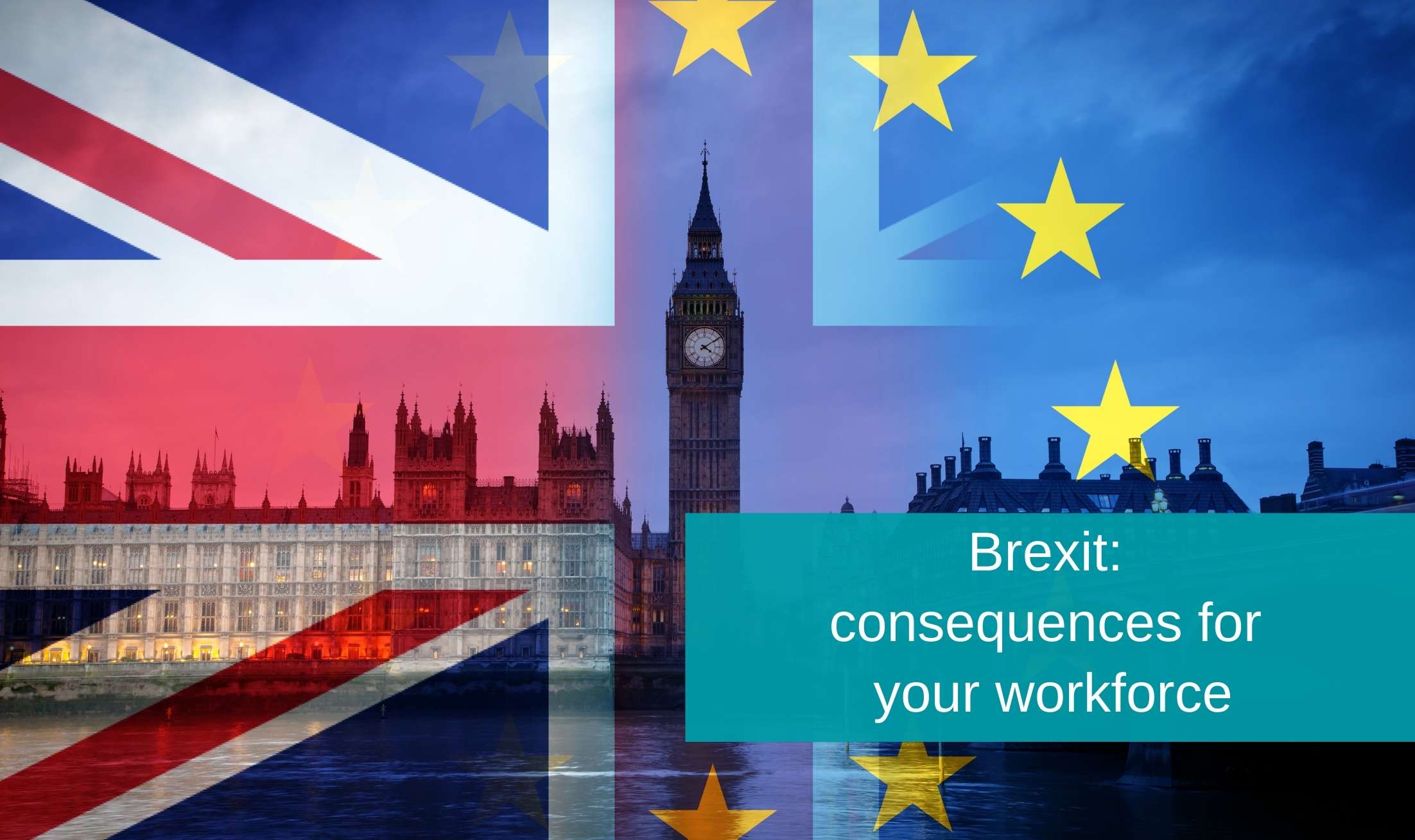Most of the last year the news has been inundated with reports on COVID-19. But whilst we were looking the other way, Brexit also happened. Obviously, Brexit means a lot of things depending on who you are and your personal point of view but it also has its effect on your workforce and workforce strategy, since it relates to the movement of your workforce (employees, contractors, temps and freelancers).
Soon enough borders will be opening again. We will want to reconnect with colleagues and get work done face to face. However if you go to the UK to work from the EU or vice versa a lot has changed.
There are different ways to look at changes after Brexit. This article focuses on the mechanics, and will hand you a cheat sheet i.e what you need to know to move your workers.
On a later date we’ll describe how we see organisations and workers reacting to the new post-Brexit rules and its impact on workforce strategy.
European freedom of movement ended on the 1st of Jan 2021.
The UK is no longer part of the EU which means that neither EU citizens nor British Nationals have an automatic right to live and work in each other’s countries. This excludes Ireland where the UK has a separate deal called the Common Travel Agreement (CTA)
EU workers in the UK.
If your workers are already in the UK they should be okay, but they will need to apply to stay. Those who have made the move permanently prior to January can apply to remain under the EU Settlement Scheme (EUSS). They need to do this before 30 June 2021. Employers in the UK are required to check their employees right to work after the 1st of July 2021.
It’s essential that EU nationals apply when they are eligible and planning for settled status. If they don’t, they will not only be prevented from working, they will also be subject to the UK’s hostile environment controls, which include limited access to health care and prevention from accessing housing.
British Nationals settled in the EU have a reciprocal agreement to EUSS and are protected by the withdrawal agreement. However, like EU nationals in the UK, they may need to register with their country of residence and should check what they need to do to secure settled status.
What if my workers are traveling back and forth?
If you have workers splitting their time between EU member countries and the UK, without a settled status, they may require work visas even if they are only working for a few days.
No visa needed:
- If they only travel to attend meetings and conferences, as long as it’s for less than 90 days within a 180-day period.
- They will need a passport which is valid for at least 6 months and won’t be able to use ID cards any longer.
A visa is needed:
- When they’re transferring from one country’s branch or office to another. Even if it’s for a short period of time.
- When your worker is providing services or providing contracts to a client in another country. This means Contractors and Freelancers will now require visas if they are doing anything more than attending meetings.
The UK’s post Brexit Immigration system
EU country citizens will no longer have preferred status and will be subject to the same migration requirements as non-EU citizens. The UK has designed its immigration system to facilitate entry for skilled workers, excluding people who enter to take low skilled work.
There are two routes for employers to sponsor entry for work in the UK. Workers can stay for up to 5 years (T2 Visa)
- The skilled worker route
A prospective employee must score a total of 70 points based on various skill and salary requirements. The minimum salary being £25,600. But you get bonus points if you have a PHD, a STEM skill or are filling a defined role where there is a shortage. These bonus points can reduce the threshold to £20,480. - The intra company transfer (ICT)
The ICT allows employers to sponsor existing employees of an overseas entity to send them on a UK assignment. This is also subject to a minimum skill and salary requirement. The threshold for ICT entry is high at £41,480, presumably to prevent abuse although for graduates and trainees the threshold is lower at £23,000.
Employers will need to sponsor their workers through their UK registered business and pay an immigration skills charge of £1000 per year and a health surcharge of £624 per year.
It may be reassuring for you to know that for those who have qualified under the EU Settlement Scheme there is no minimum skill or salary threshold and no requirement to pay the health surcharge.
The T5 visa
Musicians, entertainers, sports people and farm workers can enter the UK using this visa which allows them to stay in the UK for 6 months. Workers will need a sponsor, pay a visa fee and a health surcharge (the cost of this varies but much less than the T2 visa). They will also have to show they are able support themselves whilst they are in the UK.
UK worker’s planning on working in any EU member country
Unfortunately, you will need to check each member country’s immigration and visa rules.
Hasn’t COVID taught us workers no longer need to travel or be in my country?
Even before COVID, technology meant that many of us don’t necessarily need to travel or be in our employer’s country to work and provide services. We can do it all from anywhere in the world. This can be particularly attractive to handle skills shortages or benefit from wage arbitrage (read more). However, you will still need to carefully consider tax rules and regulatory requirements both in your own and the workers’ country of residence before you do this. Get this wrong and it could get very expensive and damaging to your reputation.
The arm wrestle is not over yet
The UK and EU are continuing to negotiate on all sorts of bilateral deals which will affect the movement of workers. In the UK, we hear a lot about how Brexit makes it more difficult for artists to move freely across Europe. So expect many side deals to allow the movement of a variety of professional groups if it is in our shared interest.
Keep an eye out for our article on how organisations, workers and workforce strategies are affected by Brexit. Whilst Brexit can feel like an unwelcome hassle for some, it also presents an opportunity on both sides of the Channel.
 About the author
About the author
Dugald McIntosh is a Managing Partner at TalentIn and head of TalentIn’s UK office. Dugald is an expert in the design of local and multi-country workforce solutions and former Executive with world leading resourcing outsource providers.
TalentIn has extensive national and international experience in developing and improving strategies for the recruitment of your permanent and temporary staff. We know how these programmes can be designed and implemented successfully. We advise, but can also provide practical support. Are you interested? Please contact us for an appointment without obligation via www.talentin.eu, info@talentin.eu
or +31 10 307 54 22





